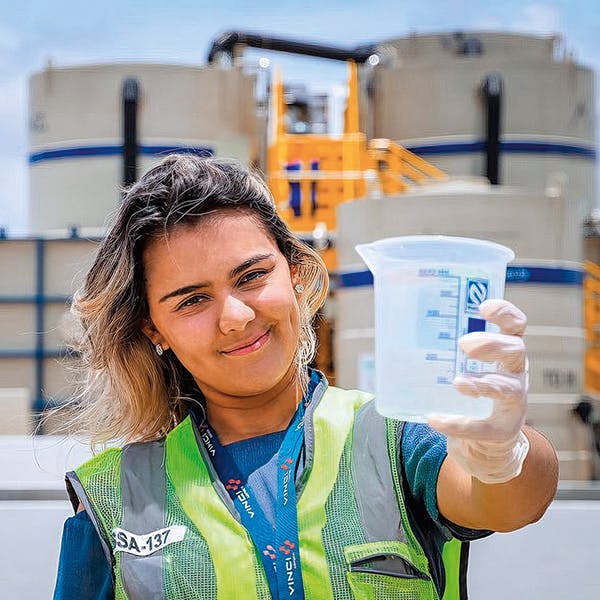COMMITTED TO PRESERVING NATURAL RESOURCES
VINCI Concessions reduces its environmental footprint at every step of the value chain by limiting the extraction of raw materials, reusing and recycling materials, and minimising water consumption.

Better managing consumption
VINCI Concessions is committed to protecting water resources and has therefore set itself the aim of halving consumption per work load unit at its infrastructure by 2030. In 2024, the company initiated the Smart Metering Project to optimise its water and energy consumption. The aim is to equip all network infrastructure with solutions to collect data regarding its energy and water consumption. That data will then be gathered on a single platform that can be used to automate reports, manage usage better and compare infrastructure. The system is scheduled for rollout in 2025.
Reusing waste
All entities in the VINCI Concessions network are also ramping up their waste reduction and recovery efforts. At Phnom Penh airport in Cambodia, for example, VINCI Airports has adopted the VINCI Concessions policy of sending zero waste to landfill. The airport has rolled out various initiatives in order to reach this objective: reducing waste at the source, with a focus on limiting single-use plastic and packaging; sorting waste to recover as much recyclable waste as possible; and improving recyclability by incorporating ragpickers in the waste management chain, enabling the project to create a positive environmental and societal impact for the region. In 2025, the approach will be rolled out to Latin America, the Caribbean and Cabo Verde. And in France, VINCI Autoroutes aims to recover 100% of operational waste and waste from the service areas under its management in 2030 (of which 80% recovered for material reuse, in the case of operational waste).
